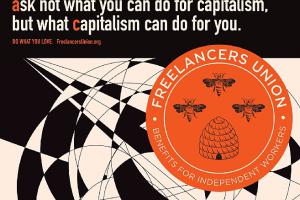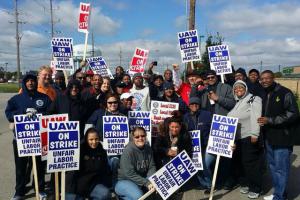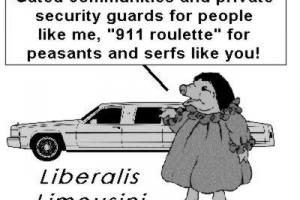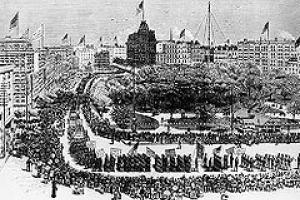Lessons From the British Columbia Teacher's Strike
The Tyee
 The Freelancers Union’s attempt to claim 34 percent of the population as mostly delighted freelancers clouds our understanding of the need for reform. While the Freelancers Union is doing important work to support a select group of freelancers, its approach isn’t likely to work for other independent workers; those workers who are more replaceable may still need to go to war against industry leaders if they’re going to access acceptable working conditions.
The Freelancers Union’s attempt to claim 34 percent of the population as mostly delighted freelancers clouds our understanding of the need for reform. While the Freelancers Union is doing important work to support a select group of freelancers, its approach isn’t likely to work for other independent workers; those workers who are more replaceable may still need to go to war against industry leaders if they’re going to access acceptable working conditions.
 Roughly 20 to 25 percent of all union contracts have recently contained some kind of two-tier payment. Such arrangements, often made in response to threats of plant closures or job losses, can turn into strategies for long-term suppression of wages. They can also generate conflict and resentment among workers making vastly different amount of money and undermine solidarity.
Roughly 20 to 25 percent of all union contracts have recently contained some kind of two-tier payment. Such arrangements, often made in response to threats of plant closures or job losses, can turn into strategies for long-term suppression of wages. They can also generate conflict and resentment among workers making vastly different amount of money and undermine solidarity.
 Historical discrimination, demographics, and public funding have left home care workers at the very bottom of the American work hierarchy. The wages these workers earn are painfully low: the median salary for a personal care aide is $19,910 annually, or $9.57 an hour; a home health aide earns $20,820 or $10.01 per hour. On the Bureau of Labor Statistic's list of 30 fastest-growing jobs, personal and home care aides are the worst paid.
Historical discrimination, demographics, and public funding have left home care workers at the very bottom of the American work hierarchy. The wages these workers earn are painfully low: the median salary for a personal care aide is $19,910 annually, or $9.57 an hour; a home health aide earns $20,820 or $10.01 per hour. On the Bureau of Labor Statistic's list of 30 fastest-growing jobs, personal and home care aides are the worst paid.
 Most liberals continue to pay lip service to unions and their importance to the Democratic coalition. But in private, many will tell you that they have little use for them. Julian Zelizer, a Princeton political economist, argues that the marriage between liberalism and organized labor “took a terrible turn starting in the 1970s,” when global competition moved manufacturing jobs from the unionized Northeast and Midwest to the non-union South and, ultimately, abroad.
Most liberals continue to pay lip service to unions and their importance to the Democratic coalition. But in private, many will tell you that they have little use for them. Julian Zelizer, a Princeton political economist, argues that the marriage between liberalism and organized labor “took a terrible turn starting in the 1970s,” when global competition moved manufacturing jobs from the unionized Northeast and Midwest to the non-union South and, ultimately, abroad.
 Impatient hedge-fund billionaires do not attempt to conceal their contempt for the rest of us. They are used to making money—fast. Witness what they have done to large segments of the overall economy. Education does not thrive in those conditions, because there is no standard of perfection in any schoolhouse that can survive brutal suppression of uniformity imposed by clumsy testing. A successful school not only makes room for dissent. It constantly nourishes it.
Impatient hedge-fund billionaires do not attempt to conceal their contempt for the rest of us. They are used to making money—fast. Witness what they have done to large segments of the overall economy. Education does not thrive in those conditions, because there is no standard of perfection in any schoolhouse that can survive brutal suppression of uniformity imposed by clumsy testing. A successful school not only makes room for dissent. It constantly nourishes it.
Spread the word